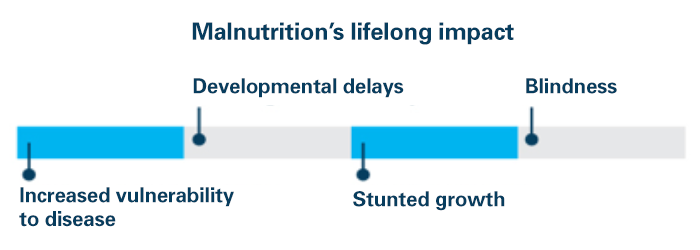The Nigerian cuisine is based largely on carbohydrate-rich foods like yams, cassava, rice, beans and grains such as millet and sorghum. The Nigerian forebears who cultivated and ate a lot of those foods were involved in a lot of physical activities that helped them burn the carbs from their diets. They were mainly involved in farming; the most common modes of transportation then were the use of bicycles or feet (trekking) so somehow the intensity of their physical activities ensured they were within a healthy weight range.
Increasing westernization in Nigeria like in other developing countries meant a shift towards more sedentary lifestyles; fewer people did physically exacting jobs. But westernization has not changed so much of the Nigerian cuisine. As a result, most Nigerians of today eat the same foods at almost the same rations their forebears who did more physically exacting jobs ate, causing a sharp increase in the number of overweight Nigerians as reported by several researchers. An increase in overweight or obesity cases meant an increase in related diseases like high blood pressure, diabetes and several cardiovascular diseases.
It is, therefore, necessary that Nigerians who intend maintaining healthy body weights make lifestyle adjustments that should include dietary modifications and increased physical activity. To achieve a healthy body weight we recommend you do the following.
- Decide to maintain a healthy weight. Making certain decisions often translates into conscious decisions to achieve one's objectives. This also applies to maintaining a healthy body weight. There are no wrong reasons for wanting to shed excess body weight, but health-related reasons trump fashion and confidence. So no matter your reason, deciding to maintain a healthy body weight is a beautiful decision.
- Invest in a body weight/bathroom scale. You need to know your present body weight to determine if it is within the healthy range or not. This will help you know how much body weight you should work towards shedding or adding as the case may be. Also, you will need to monitor how effective the modifications you adopt are. Owning a body scale helps everyone in the home keep tabs on their weight gain. Luckily, bathroom scales are not usually expensive. A bathroom scale will also help make it easy for you to periodically calculate your Body Mass Index (BMI) using the formula in the image below.
| After calculating your BMI, check the range to which the figure falls in to determine if your weight is within the healthy range or not. |
Since adults do not usually record changes in height as they do in weight, all one may need to do is check his/her height at a health or fitness center and use the figure obtained in calculating one's BMI periodically.
3.Get involved in a targeted body weight-control program. All weight control programs are not the same. Weight-control programs are often designed for certain people in mind. There are several apps downloadable on most phones and computers designed for body weight control. They usually include diet as well as body workout suggestions. Some include animations to put you through the processes. The beauty is that most of these apps are free and workout sessions are adapted to suit both beginners and persons already experienced in workouts. Workout sessions usually last for 5 to 10 minutes and can be done in the comfort of one's home making them especially suitable when the hustles and bustles of life in Nigeria is put into perspective. Like our Facebook page and send us a message for recommended apps that may be suitable for you.
4. Dietary modifications!Dietary modifications!!Dietary modifications!!!. Effective weight control programs involve both dietary modifications and physical activity. There should be a suitable balance between your calorie intake and expenditure. You may need to reduce your starchy foods portion, increase your intake of fruits and vegetables, cut down on processed foods and increase water intake. The particular regimen you follow depends on your present health and fitness status. Weight loss programs are not necessarily expensive and do not always demand special foods not obtainable in the Nigerian market. Most times portion control can do the job. Weight-control programs are easier in more developed countries where foods carry nutritional information. Nutritional information when found on made-in-Nigeria products are not always reliable.
If you would like to know more about targeted weight-control programs and suitable apps, you could chat us up on our Facebook page or send us an email on the address displayed on the blog.
Author: Atukpawu Onyinyechi; A volunteer nutritionist at The Informed Mum.
Author: Atukpawu Onyinyechi; A volunteer nutritionist at The Informed Mum.





